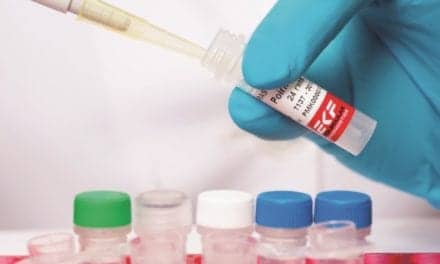Grail, Menlo Park, Calif, has initiated Pathfinder, a prospective, multicenter study that will enroll approximately 6,200 participants across several health systems. The study will evaluate the implementation of Grail’s investigational multicancer early detection test in clinical practice. The study marks the first time that results from the test will be returned to healthcare providers and communicated to participants to help guide appropriate diagnostic workup for more than 50 cancer types.
Initial Pathfinder health system partners include the Dana-Farber Cancer Institute, Intermountain Healthcare, Mayo Clinic, Oregon Health and Science University, and Sutter Health. There are plans to expand the study to additional partners. The first participants have been successfully enrolled.
Today, the majority of deadly cancers do not have US guideline-recommended screening paradigms. As a result, many cancers are not detected until they have progressed to late stages, when chances of survival are lower.
Data from previous clinical studies have demonstrated that Grail’s multicancer early detection test is able to detect more than 50 cancer types across all stages through a single blood draw, with a false-positive rate of less than 1%. When a cancer signal is detected, Grail’s test is also able to identify with high accuracy where in the body the cancer is located. Identifying a cancer’s tissue of origin will enable healthcare providers to efficiently guide Pathfinder participants with a cancer ‘signal-detected’ test result through the appropriate care pathway.
“Grail is at the forefront of transforming early cancer detection as we bring our multicancer test into clinical practice through our first interventional study,” says Hans Bishop, chief executive officer at Grail. “We are partnering with leading healthcare systems to gain important real-world insight into the clinical use of our multicancer early detection test, an important step on our path toward commercialization.”
“Grail set out to develop a true multicancer early detection test, and we believe we have built the world’s largest methylation database that’s enabled machine learning rooted in fundamental insights into the biology of cancer signals in the blood,” says Alex Aravanis, MD, PhD, cofounder, chief scientific officer, and head of research and development at Grail. “Building on our foundational investments in science and technology, we developed a high-performing test for the detection of over 50 types of cancer, and we are excited to evaluate its ability to inform clinical care.”
Grail’s test is not yet available for use outside of the Pathfinder investigational study. It is not meant to replace cancer screening tests that healthcare providers may recommend, such as colonoscopy or mammography.
For more information, visit Grail.
Featured image: Photo © Katarzyna Bialasiewicz, courtesy Dreamstime (ID 65987605).






